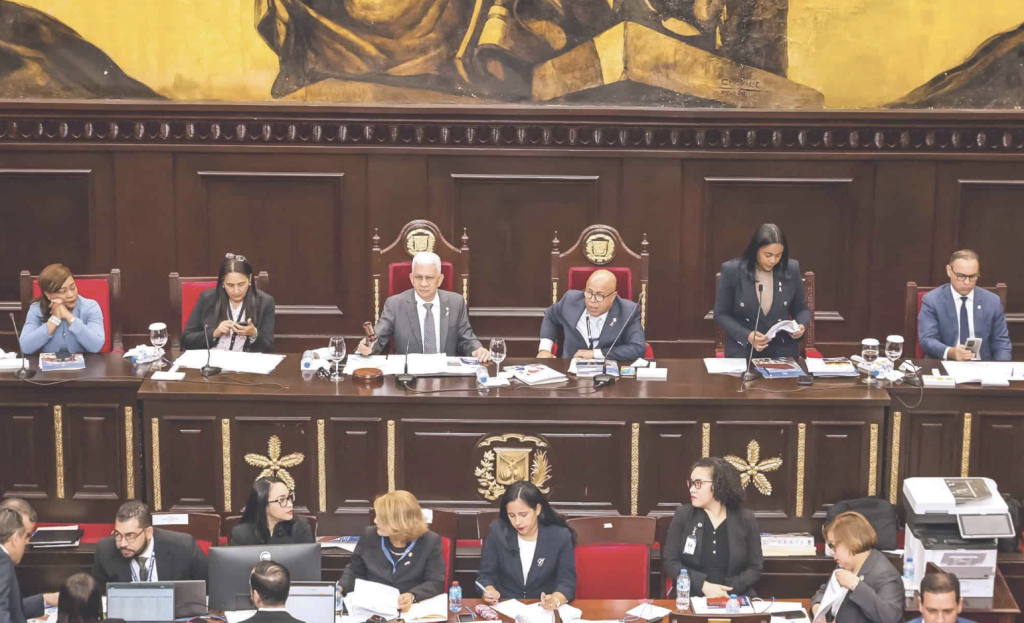
The National Constitution Revisory Assembly has approved amendments to the 2015 Constitution and sent the bill to the Presidency for enactment. The 40th constitutional reform changes at least 10 articles of the Constitution and adds another one. Most of the amendments impact the country’s political system. This is the first time that a sitting President pushes forward amendments that do not enable him to run for another term.
The amendments were to articles 81, 166, 167, 169, 171, 178, 179, 209, 268, 274 and the addition of article 278. Transitory dispositions were added.
Among the amendments:
Art. 81. The legislators voted in favor of reducing the number of deputies from 190 to 170.
Art. 166-167. These articles establish that the General Lawyer of the Public Administration is the permanent representative of the Administration before the Administrative Contentious Jurisdiction. This is the court that reviews whether government officers have acted according to the law. The amendment will include the stipulation that adjunct lawyers can be appointed as needed. The Office of the General Lawyer of the Public Administration is a dependency of the Executive Branch.
Art. 169. The Public Ministry is the body of the justice system responsible for formulating and implementing criminal prosecution policies against crime, directing criminal investigations, and exercising public action on behalf of society.
Paragraph I.- In the exercise of its functions, the Public Ministry will guarantee the fundamental rights of citizens, promote alternative dispute resolution, provide protection for victims and witnesses, and defend the public interest protected by law.
Paragraph II.- The law will regulate the functioning of the prison system under the direction of the Public Ministry or another body that may be established for this purpose.
Art. 171. The change establishes that the President of the Republic at the start of his mandate will propose to the National Council of the Magistracy a person to be named Attorney General and seven to be appointed adjunct prosecutors.
Paragraph I.- The Attorney General of the Republic and the seven deputy attorneys, appointed by the National Council of the Judiciary, shall have a status of immovability for two years. They may be confirmed at the end of their term by the National Council of the Judiciary, under the same rules as their election, except in the case of dismissal through impeachment.
Paragraph II.- In the event of a definitive vacancy of the Attorney General of the Republic and their deputies, their replacement will be appointed through the same mechanism for the remaining time to complete the current two-year term.
Art. 178. This article establishes the membership of the National Council of the Magistracy (CNM), removing the Attorney General, but adding the president of the Constitutional Court. The new president of the Constitutional Court was recently appointed by the CNM, presided by President Luis Abinader.
The members of the CNM that appoints the judges of the higher courts would now be:
- The President of the Republic, or the Vice President;
- The president of the Senate;
- A senator chosen by the Senate of the Republic, who belongs to a party or coalition different from that of the president of the Senate and represents the second-largest majority;
- The president of the Chamber of Deputies;
- A deputy chosen by the Chamber of Deputies, who belongs to a party or coalition different from that of the President of the Chamber of Deputies and represents the second-largest majority;
- The president of the Supreme Court of Justice;
- A judge of the Supreme Court of Justice chosen by its full membership, who will serve as secretary;
- The president of the Constitutional Court.
Art. 179. This article defines that the National Council of the Magistracy will appoint the Attorney General and seven adjunct prosecutors. The other roles of the CNM are to appoint the judges of the Supreme Court of Justice; appoint the judges of the Constitutional Court; appoint the judges of the Superior Electoral Court and replacements.
Art. 209. Unifies the 2032 election on the same date at the levels of municipality, congressional and presidential. This date is the second Sunday in May every four years. Previously, the municipal elections were held in February and the presidential and legislative elections in May of the same year.
Article 268. Government form. This article establishes that no amendments can change the civilian, republican, democratic and representative form of government. It is not clear how this was amended.
Article 274. Elective term. This article was amended with the change of the election date for the municipal authorities to the same second Sunday in May date every four years of the presidential and congressional elections. It was decided that the municipal authorities elected on the third Sunday in February 2028 will remain in their positions from 24 April 2028 to 16 August 2032.
Art. 278. New article that establishes that no elected officer can benefit from a constitutional mandate during the current term regarding election and term extension for the position.
The changes passed with the majority vote of the ruling Modern Revolutionary Party (PRM). The PRM has 176 of 222 legislators.
Read more
Diario Libre
Diario Libre
Hoy
2015 Constitution
DR1 News
DR1 News
15 October 2024

